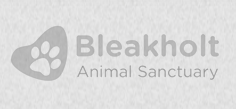Specialities
How can we help your pet? Adopting an experienced yet down to earth approach, Catherine will discuss your pets problems and guide you, nothing is ever rushed, you make an informed decision.
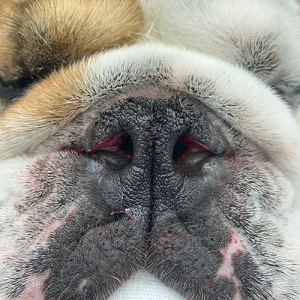
Ears, Nose and Throat
The head and upper neck region in cats and dogs can give rise to a number of complex and debilitating conditions. Painful ears that have become poorly responsive to medications, the loveable Bulldogs and Pugs that struggle with their breathing are two examples of complex conditions that in specialist hands can be corrected with intricate surgery.
Thorough history taking regarding the development of your pet’s problem and their lifestyle coupled with careful examination, forms the basis of a treatment plan. Some patients may be advised that a little more investigation is required prior to making any conclusive decisions, however, in some cases we guide you to a surgical intervention.
Listed below are just some of the conditions that are seen regularly by a Visiting Vet Specialist:
- Chronic ear infections – otitis externa / media
- Salivary gland rupture – salivary mucocoele
- Excessive soft tissue in the throat – Brachycephalic obstructive airway syndrome
- Cancers in the oral cavity necessitating mandibulectomy or maxillectomy surgery
- Thyroid cancer
Should a patient require advanced imaging such as CT or MRI as part of the planning stage then this can be discussed and arrangements made accordingly. A number of local practices have mobile advanced imaging available, so these modalities are now widely available for every pet.
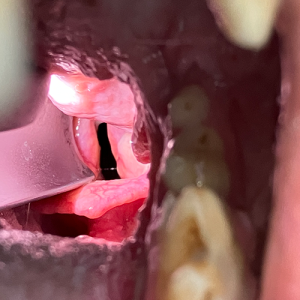
Laryngeal paralysis
This condition is most commonly seen in our middle aged and older large breed dogs. As a patient ages, the nerve supply to the muscles of the larynx looses its strength, in time, the muscles that power the vital movements of the laryngeal cartilages wither away. The consequence is that instead of the larynx opening and closing efficiently to allow a patient to breathe, the cartilages hang lifeless and obstruct the airflow.
Surgery to reposition and tether part of the paralysed larynx is a life saving procedure, commonly performed by a Visiting Vet Specialist and enables many otherwise well older dogs to enjoy their walks and doggy antics again.
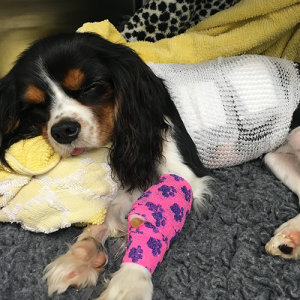
Thoracic surgery
Carefully planned opening of the chest cavity in the hands of a specialist can provide access to the trachea (windpipe), lungs, heart and oesophagus. The surgery is performed with full consideration given to the anaesthetic safety during the surgery and providing the vital pain relief to allow a smooth and comfortable recovery.
Common reasons for thoracic surgery are:
- A bone stuck in an oesophagus
- Removal of a lung tumour or a twisted lung lobe
- Removal of a lung abscess
- A pebble lodged in an airway
- Correction of congenital heart defects
- Management of pericardial effusion
- Correction of vascular ring anomalies
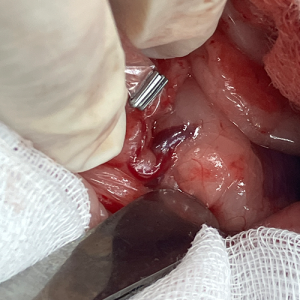
Abdominal surgery
The abdominal cavity houses a large number of vital organs such as the liver, gall bladder, stomach, intestines, kidneys, spleen and bladder. Diagnostic imaging specialists will often be called upon to gather information with minimally invasive techniques such as ultrasound, enabling a diagnosis to be made prior to surgery. Surgically looking into the abdomen provides access for thorough inspection, corrective surgery and further biopsy sampling.
Common reasons for a specialist to perform abdominal surgery would be:
- Rupture of the spleen or liver
- Diaphragm rupture
- Portosystemic shunt surgery
- Gall bladder / bile duct obstruction
- Foreign body in the gastrointestinal tract
- Removal of a diseased kidney, liver lobe or malfunctioning adrenal gland
- Urinary tract surgery
- Management of peritonitis
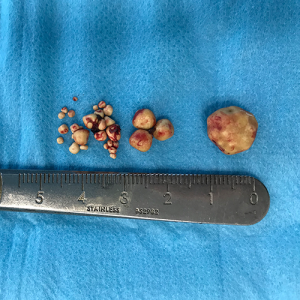
Urinary and reproductive systems
We take for granted that our pets can pass urine normally however, when this system goes wrong it can have a huge impact upon the patient and their owners.
Conditions that are seen regularly by Visiting Vet Specialists include:
- Urinary incontinence
- The ‘blocked cat’
- Urinary obstruction in dogs
- Bladder cancer management
- Prostatic cysts and abscesses
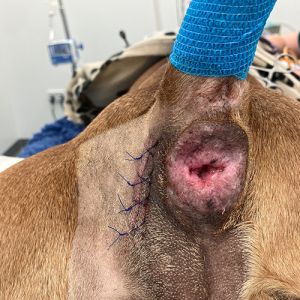
Hernias
The body can develop a weakness in muscle at a number of locations. The weakness is something a patient could be born with, or it slowly develops over time or an acute trauma such as a road traffic accident can disrupt muscle fibres. Hernias form as the internal organs bulge into the pocket created by weakened muscle. The situation can be life threatening if an organ such as an intestinal loop or bladder gets trapped in a hernia.
Hernias corrected by a Visiting Vet Specialist include:
- Perineal hernias
- Inguinal hernias
- Traumatic hernias following abdominal wall disruption
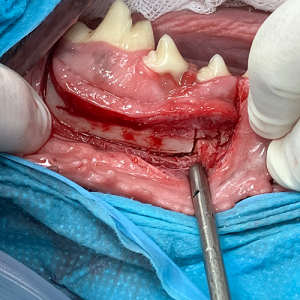
Tumour removal and reconstructive surgery
Surgery can be an important part of cancer therapy. Careful assessment of the patient is made by the Visiting Vet Specialist. Every patient is an individual and what might be right for one patient, may not be fitting for another.
It is always important to know if the cancer has in anyway spread elsewhere in the body, the latter may render surgery an inappropriate course of action. Imaging techniques of ultrasound, xray and advanced imaging such as CT scans can help the specialist decide if it is in your pets interests to move forward to surgery or not. Advanced imaging is available at a number of local practices nowadays, so far more accessible. Cancer specialists at Chemopet are often regularly consulted to give a thorough perspective on the cancer, the management options and expectations.
Cancers managed by Visiting Vet Specialists include:
- Mast cell tumours
- Soft tissue sarcomas
- Oral tumours
- Thyroid tumours
- Rib chondrosarcomas
- Abdominal tumours
- Anal gland tumours
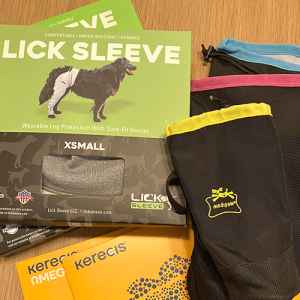
Wound management
Visiting Vet Specialists are passionate about wound management. It is our belief that most wounds will heal without complex surgery if given the correct support and time. From an initial assessment, we guide you and provide ongoing advice and support, as much or as little as the patient needs until the wound is healed.
Deep cavity wounds and patients with skin loss over their limbs following a road traffic accident can often gradually heal in a 6-8 week time frame without definitive surgery. There are however, some wounds that are better managed with a skin graft or skin flap. Each patient is assessed as an individual by the specialist, the patient’s lifestyle considered and any concurrent illness taken into account when formulating an appropriate treatment plan.
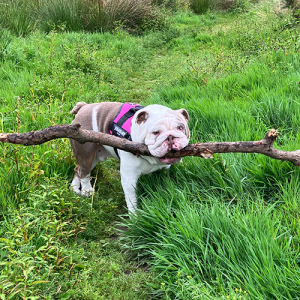
Stick injuries
Some dogs just love to catch a stick or will find their own stick to play with whilst out walking. Unfortunately, for some dogs, the stick can accidentally penetrate into the oral cavity and beyond. Apart from the initial pain experienced, in some instances a splinter or two may penetrate more deeply and set up an abscess in the neck region a few weeks after the initial injury.
Some dogs though will have run onto a stick at speed and a substantial part of a branch can be lodged deep into the neck. Each case is managed depending on the severity of the situation. A specialist surgeon has good knowledge of the vital structures in the neck that must be avoided during any surgical treatment of a stick injury.
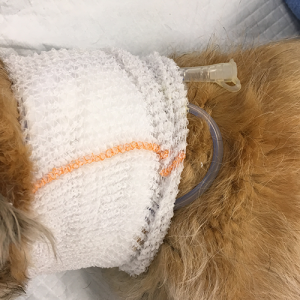
Vital accessories
Feeding tubes: The use of feeding tubes to support patients following surgery or through a chronic illness can be invaluable. Oesophagostomy tubes can be placed simply and with minimal trauma via the neck, allowing these tubes to sit comfortably beneath a neck dressing. The beauty of these tubes is that the patient can be given liquid food, water and medications but the patient can still be offered normal food to see if their appetite is returning.
Chest drains : Patients with air or fluid within their chest cavity will have difficulty breathing. Placement of chest drains can be done using a small diameter drain placed over a wire introducer. These drains are very well tolerated and provide a temporary life line for our patients.
Urine collection or diversion : A cat that is struggling to pass urine, a rupture in a urethra, a dog with a poor bladder contractility – but a few reasons why sometimes a catheter and urine collection system might be required. Careful investigation, thoughtful selection of the correct approach and catheter for the individual patient can provide immense relief whilst awaiting a definitive surgery or giving the body time to heal.


